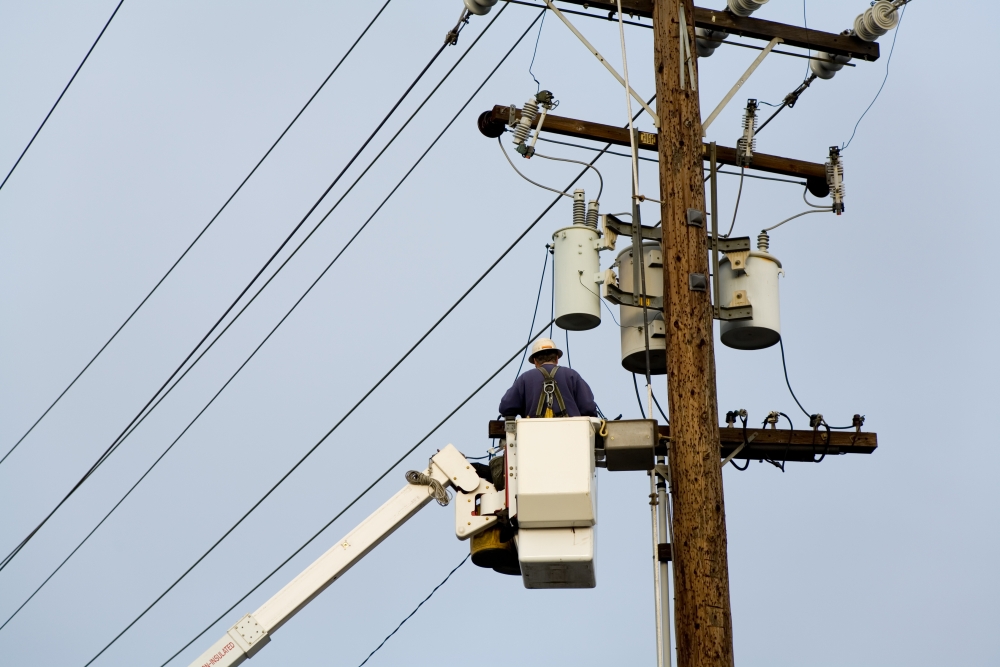
Denial, Doubt and Delay

Significant parts of the American electric utility industry actively misled the public on climate science for multiple decades and later delayed climate action, according to a study by researchers at UC Santa Barbara.
Their findings are published in the journal Environmental Research Letters.
As the facts of climate science became more established — that climate change exists and is human-caused — this research finds that utility industry organizations shifted toward climate denial. The study also reveals that utility organizations in the 1990s co-founded front groups to spread climate disinformation and that after 2000, electric utility affiliated organizations shifted toward climate delay.
“It wasn’t just official industry organizations promoting these lies,” said Leah Stokes, the Anton Vonk Associate Professor of Environmental Politics at UC Santa Barbara. “Like a shell game, utilities set up multiple front groups to attack climate science, hiding who was funding the work — and why. Worst of all, monopoly utilities used money from captured customers to fund these climate denial campaigns.”
Further, the study found that the electric utilities that currently maintain the largest fossil fuel assets are the same ones that promoted the most climate denial, doubt, and delay. These findings indicate that the worst utility actors slowed nationwide decarbonization with decades of misleading public messaging. And their efforts extend beyond messaging alone: in the last two decades, utilities spent over $500 million lobbying against renewable energy and climate policies.
This study involved a sample of 188 primary documents from utility companies, trade associations, and front groups published between 1968 and 2019. A subset of this sample of documents was representative of journals published by the Edison Electric Institute (EEI) and the Electric Power Research Institute (EPRI).
The results suggest that American electric utility industry organizations, like their counterparts in the fossil fuel industry, promoted messaging designed to avoid taking action on reducing carbon pollution over multiple decades:
● In the 1960s and 1970s, electric utilities received, and internally issued, early warnings that burning fossil fuels would destabilize the climate and lead to global warming.
● In the 1980s, highlighting the uncertainties of climate science, the utility industry joined hands with oil and gas companies to promote doubt around climate change for the sake of continued fossil-fueled profits.
● Throughout the 1990s, despite the established scientific consensus on human-caused climate change, utilities increasingly shifted toward outright climate denial, including
founding front groups to spread climate disinformation.
● By the 2000s, industry tactics shifted from climate denial to delay. Utilities’ messaging focused on how other countries and sectors were more responsible, promoting carbon capture and storage and “clean coal” as the most promising climate solutions.
Electric utilities as a whole are moving too slowly toward decarbonization, the researchers say, noting it doesn’t have to stay that way. Unlike fossil fuel companies, electric utilities do not sell fossil fuels. Utilities can play a huge role in solving the climate crisis through clean electricity and electrification, if they take advantage of the opportunity, Williams asserted.
“Utilities must reckon with the role they played delaying climate action from the 1960s to the present day,” said Williams, lead author of the article and postdoctoral scholar at UC Santa Barbara. “By knowingly promoting doubt and denial, and in more recent years, and by pushing messages that justify delaying decarbonization, utilities hold partial responsibility for today’s climate crisis, and the slow efforts to address it. They need to acknowledge their role in spreading disinformation, and choose a different future.”



